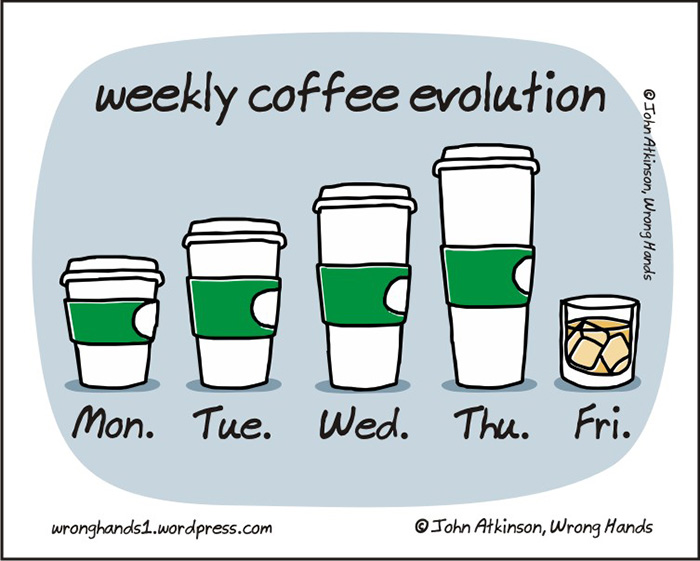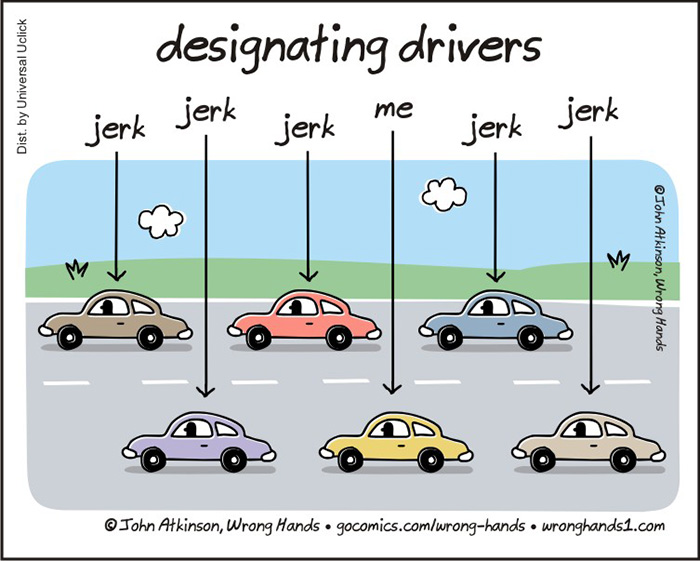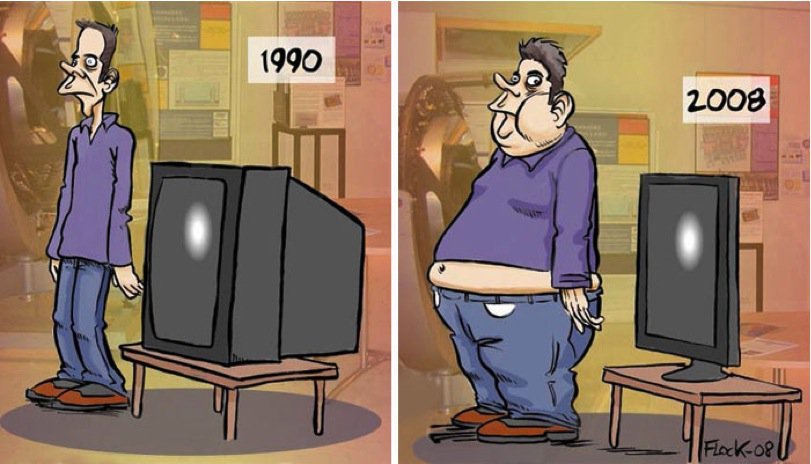Become a Patron!
You are using an out of date browser. It may not display this or other websites correctly.
You should upgrade or use an alternative browser.
You should upgrade or use an alternative browser.
Jimi's Daily Health Articles
- Thread starter Jimi
- Start date
Inspiration for Your Week
You're going to be telling a different story really soon. One of healing, success, abundance, prosperity, love, happiness, peace, and great joy. You're going to be stronger, wiser, and full of life, sharing all your blessings and passing along the light you're receiving.
Thanks, Jimi. This is awesome!

Is Burning Incense Bad for You?
https://draxe.com/health/is-burning...tm_campaign=20191218_curated_frankincenseplug
https://draxe.com/health/is-burning...tm_campaign=20191218_curated_frankincenseplug

5 Ways to De-Stress in 5 Minutes
Americans are constantly ranked among the most stressed out people in the world.
And although there’s nothing wrong with a little stress, since it can give us the strength and urgency to carry on, big stress can be paralytic.
The disconnect between the constant, gnawing needling of the multitasking, compartmentalizing, organizing voice in the back of our heads and the little bit of stress that the human brain is designed to handle…
Is that evolutionarily, stress was meant to help you survive.
The stress we experience today, on the other hand, is killing us.
Grinding our teeth because we might be four minutes late to work due to traffic is not with our stress neurocircuitry was meant to signal.
Chewing our nails because our bank account overdrafted is a misuse of the stress function.
Forcing ulcers to grow in our stomachs while we keep our heads down and noses to the grindstone at jobs we hate poisons the body and doesn’t help us make decisions.
When you consider how many micro-triggers are part of the Western ecosystem, it’s absolutely no wonder that Americans are riddled with weakened immune system, increased diabetes, low productivity, fatigue, high blood pressure, insomnia, obesity, heart disease, and more.
Not only that, but chronic stress has also been linked to disintegration of the hippocampus and a malfunctioning prefrontal cortex, which messes with your depression susceptibility and your cognitive function.
We’re going to break accessible possibilities into five ways to de-stress in only five minutes, while you’re on the go and when you don’t have time.

Mindful Breathing
One of the first things stress and anxiety affect is the breath — when you’re panicked, worried, or otherwise keyed up, the breath changes. It becomes shorter, shallower, clipped.
In those moments, remember to breathe mindfully.
Try this: Touch the place where the back of your top teeth meets the roof of your mouth with your tongue.
Breathe out through your mouth so that your breath makes a whistling noise.
Touch your lips together and breathe in through your nose for 4 seconds.
Hold for 6 seconds.
Exhale for 8.
Repeat.
Listen to Relaxing Music
There’s no right music — some people swear by ambient sounds, others by classical music, and others still prefer ASMR recordings (Autonomous sensory meridian response).
Soothing music has been shown to lower heart rate, blood pressure, pulse, and even stress hormones like cortisol.
If it calms you down, then it’s the right track.
If you can’t think of anything that calms you down, try exploring those avenues when you’re not panicking and that will help you be prepared for those stress attacks.
Stretch
If you’re in the car, fine. At your desk? Fine. Making dinner and your family’s boiling your blood? Fine.
Step away if you can, and if you can’t, who cares? Reach your arms up as high as they’ll go. Reach them out to the sides as far as they’ll go. Rotate your wrists. Turn your ankles. Bend at the waist and dangle your arms to get them as close to your toes as you can.
Increasing the rate of circulation in your body improves brain function and oxygen distribution, powering up your body’s cells.

Do a Body Scan
You can do this anywhere and from the comfort of your own brain space.
Start with your toes. Wiggle them all. Now wiggle each one individually.
Good.
Move up to your ankles, then your calves, knees, thighs, and so on. Whenever you feel tension, stiffness, or pain, pause and breathe through it.
By the time you get to your head, your whole body will have been given this treatment, and you may even have forgotten you were stressed out in the first place.
Sing
If you’re somewhere you can make noise, sing as loud as you can. If you’re somewhere people may hear you, walk away a bit and sing softly, or hum.
When you sing, your brain releases endorphins, the exercise-happy chemical, and oxytocin, the cuddle-happy chemical.
Not only that, but it activates the vagus nerve, the part of your body that connects not only to your gut and your brain, but to the parasympathetic nervous system, which is where that fight-or-flight response is coming from in the first place.
Those five are simply five you can do anywhere.
But there’s nothing wrong with brewing a cup of tea if you can, herbal or black.
Heaving a sigh has been known to work wonders.
A couple of pivotal yoga poses have been proven to quickly reduce stress (more on that in a later issue).
But anywhere you go, you should be able to sing, scan, stretch, listen to music, or deep breathe, and calm down in five minutes.
ICU and Home Critical Care (Introduction)
https://drsircus.com/general/icu-and-home-critical-care-introduction/
https://drsircus.com/general/icu-and-home-critical-care-introduction/
Historic Grassroots Effort Against Mandatory Vaccines in NJ Produces Temporary Victory (ACT NOW TO PROTECT YOUR RIGHTS)
https://www.greenmedinfo.health/blo...uY29tIiwgImtsX2NvbXBhbnlfaWQiOiAiSzJ2WEF5In0=
https://www.greenmedinfo.health/blo...uY29tIiwgImtsX2NvbXBhbnlfaWQiOiAiSzJ2WEF5In0=
Castor Oil Packs For Cancer Prevention
https://breastcancerconqueror.com/c...ddd0c0d7442241b0a3f0fd3ee5d9b43fb34c6613498d7
https://breastcancerconqueror.com/c...ddd0c0d7442241b0a3f0fd3ee5d9b43fb34c6613498d7
Are Pre-Cut Vegetables Just as Healthy?
https://nutritionfacts.org/video/ar...-25718665&mc_cid=92dd065158&mc_eid=2fc2f620bb
https://nutritionfacts.org/video/ar...-25718665&mc_cid=92dd065158&mc_eid=2fc2f620bb
Superbugs Live in Opened Beauty Products
https://www.newsmax.com/health/heal...b=DM74675_12182019&s=acs&dkt_nbr=010502n1y7hq
https://www.newsmax.com/health/heal...b=DM74675_12182019&s=acs&dkt_nbr=010502n1y7hq
Post-Binge Biology: What Happens To Your Body When You Overeat (and 8 Things To Do Afterward)
https://www.marksdailyapple.com/wha...iyo&utm_content=MDA&_ke=eyJrbF9lbWFpbCI6ICJqa
https://www.marksdailyapple.com/wha...iyo&utm_content=MDA&_ke=eyJrbF9lbWFpbCI6ICJqa
The top 10 most evil Big Pharma news stories of 2019
https://www.naturalnews.com/2019-12-18-top-10-most-evil-big-pharma-stories-2019.html
https://www.naturalnews.com/2019-12-18-top-10-most-evil-big-pharma-stories-2019.html
The Most Effective Foods to Cleanse your Lungs
https://www.brighteon.com/dae77fd0-f67a-4574-a437-32b55b66b718
How Brain Inflammation Leads to Inflammation Everywhere | Conners Clinic Live
https://www.brighteon.com/1d934dbd-5e81-4fc6-9a30-1c1b611eb91a
https://www.brighteon.com/dae77fd0-f67a-4574-a437-32b55b66b718
How Brain Inflammation Leads to Inflammation Everywhere | Conners Clinic Live
https://www.brighteon.com/1d934dbd-5e81-4fc6-9a30-1c1b611eb91a
ARE YOU OUT OF SYNC WITH YOUR NATURAL CLOCK?
https://glownaturalwellness.com/are-you-out-of-sync-with-your-natural-clock/
https://glownaturalwellness.com/are-you-out-of-sync-with-your-natural-clock/
Symptoms of a Blood Clot
https://www.verywellhealth.com/sign...m_source=cn_nl&utm_content=18931878&utm_term=
https://www.verywellhealth.com/sign...m_source=cn_nl&utm_content=18931878&utm_term=
17 Alarming Ways Sugar is Destroying Your Health
https://yurielkaim.com/sugar-destroying-your-health

https://yurielkaim.com/sugar-destroying-your-health

Last edited:
I first came across the idea of forgiveness being linked to cancer while talking to a Mauian Kahuna, or medicine man.
After silently observing his practices for collecting botanical medicine, this Kahuna blessed me with the opportunity to ask a question.
As someone continually on the search for the best way to heal cancer, I wanted to hear his take on what caused cancer. I was curious because the way he viewed the body wasn’t about cytokines, inflammatory markers, or immune function. He viewed the body as a divine instrument provided by Ka, the Hawaiian word for God.
The Kahuna’s answer was quick and to the point. He answered without a pause, “Lack of forgiveness. That is the true cause of cancer. Anger, resentment, hurt. That is what makes cancer cells.”
It is with this understanding that I have taken in this information, and share with you this simple forgiveness practices.
In the Mauian tradition, there is a forgiveness practice known as ho’oponopono, a prayer that has been passed on from Kahuna to Kahuna for generations.
Ho’oponopono is defined in the Hawaiian dictionary as “mental cleansing: family conferences in which relationships were set right through prayer, discussion, confession, repentance, and mutual restitution and forgiveness.”
It is the idea that all relations are connected. And that we have to make right this connection in order to be well.
While the ceremony is sacred, and can be experienced with a Kahuna in the Hawaiian and Polynesian Islands, a westernized version has been released to the public.
Ho’oponopono practice:
Do this practice to make right with all your relations and free up energy for other parts of your life.
1) Bring to mind anyone with whom you do not feel total alignment or support.
2) In your mind’s eye, construct a small stage below you.
3) Imagine an infinite source of love and healing flowing from a source above the top of your head (from your Higher Self, God, or whatever you connect with). Imagine opening up the top of your head, and letting the source of love and healing flow down inside your body, filling up the body, and overflowing from your heart to heal the person on the stage.
4) Say to the person: I am sorry, Please forgive me. I love you. Thank you.
5) When the healing is complete, have a discussion with the person and forgive them, and have them forgive you.
6) Next, let go of the person, and see them floating away. As they do, cut the cord that connects the two of you (if appropriate). If you are healing in a current primary relationship, then assimilate the person inside you.
7) Do this with every person in your life with whom you are incomplete, or not aligned. The final test is: Can you see the person or think of them without feeling any negative emotions? If you do feel negative emotions, do the ho’oponopono process again.
This is one of the many forms of forgiveness practice you could try, but there are many throughout the world.
If ho’oponopono does not resonate with you, offer a prayer that speaks to your spiritual practice. Forgiveness is a common thread between all spiritual teachings whether you are Christian, Muslim, Hindu, Buddhist, or Jewish.
Forgiveness is a powerful tool for our health -- mental and physical so finding a practice that resonates with you is the first step.
After silently observing his practices for collecting botanical medicine, this Kahuna blessed me with the opportunity to ask a question.
As someone continually on the search for the best way to heal cancer, I wanted to hear his take on what caused cancer. I was curious because the way he viewed the body wasn’t about cytokines, inflammatory markers, or immune function. He viewed the body as a divine instrument provided by Ka, the Hawaiian word for God.
The Kahuna’s answer was quick and to the point. He answered without a pause, “Lack of forgiveness. That is the true cause of cancer. Anger, resentment, hurt. That is what makes cancer cells.”
It is with this understanding that I have taken in this information, and share with you this simple forgiveness practices.
In the Mauian tradition, there is a forgiveness practice known as ho’oponopono, a prayer that has been passed on from Kahuna to Kahuna for generations.
Ho’oponopono is defined in the Hawaiian dictionary as “mental cleansing: family conferences in which relationships were set right through prayer, discussion, confession, repentance, and mutual restitution and forgiveness.”
It is the idea that all relations are connected. And that we have to make right this connection in order to be well.
While the ceremony is sacred, and can be experienced with a Kahuna in the Hawaiian and Polynesian Islands, a westernized version has been released to the public.
Ho’oponopono practice:
Do this practice to make right with all your relations and free up energy for other parts of your life.
1) Bring to mind anyone with whom you do not feel total alignment or support.
2) In your mind’s eye, construct a small stage below you.
3) Imagine an infinite source of love and healing flowing from a source above the top of your head (from your Higher Self, God, or whatever you connect with). Imagine opening up the top of your head, and letting the source of love and healing flow down inside your body, filling up the body, and overflowing from your heart to heal the person on the stage.
4) Say to the person: I am sorry, Please forgive me. I love you. Thank you.
5) When the healing is complete, have a discussion with the person and forgive them, and have them forgive you.
6) Next, let go of the person, and see them floating away. As they do, cut the cord that connects the two of you (if appropriate). If you are healing in a current primary relationship, then assimilate the person inside you.
7) Do this with every person in your life with whom you are incomplete, or not aligned. The final test is: Can you see the person or think of them without feeling any negative emotions? If you do feel negative emotions, do the ho’oponopono process again.
This is one of the many forms of forgiveness practice you could try, but there are many throughout the world.
If ho’oponopono does not resonate with you, offer a prayer that speaks to your spiritual practice. Forgiveness is a common thread between all spiritual teachings whether you are Christian, Muslim, Hindu, Buddhist, or Jewish.
Forgiveness is a powerful tool for our health -- mental and physical so finding a practice that resonates with you is the first step.
5G technology becomes MORE dangerous due to human sweat, study reveals
https://www.naturalhealth365.com/5g-technology-effects-3226.html
https://www.naturalhealth365.com/5g-technology-effects-3226.html
The Risks and Benefits of Taking Low-Dose Aspirin
https://nutritionfacts.org/2019/12/...-25718665&mc_cid=096f13bdae&mc_eid=2fc2f620bb
https://nutritionfacts.org/2019/12/...-25718665&mc_cid=096f13bdae&mc_eid=2fc2f620bb
Study Estimates That Half of US Adults Will be Obese by 2030
https://www.newsmax.com/health/heal...b=DM76965_12192019&s=acs&dkt_nbr=010502e9fxbn
https://www.newsmax.com/health/heal...b=DM76965_12192019&s=acs&dkt_nbr=010502e9fxbn
I first came across the idea of forgiveness being linked to cancer while talking to a Mauian Kahuna, or medicine man.
After silently observing his practices for collecting botanical medicine, this Kahuna blessed me with the opportunity to ask a question.
As someone continually on the search for the best way to heal cancer, I wanted to hear his take on what caused cancer. I was curious because the way he viewed the body wasn’t about cytokines, inflammatory markers, or immune function. He viewed the body as a divine instrument provided by Ka, the Hawaiian word for God.
The Kahuna’s answer was quick and to the point. He answered without a pause, “Lack of forgiveness. That is the true cause of cancer. Anger, resentment, hurt. That is what makes cancer cells.”
It is with this understanding that I have taken in this information, and share with you this simple forgiveness practices.
In the Mauian tradition, there is a forgiveness practice known as ho’oponopono, a prayer that has been passed on from Kahuna to Kahuna for generations.
Ho’oponopono is defined in the Hawaiian dictionary as “mental cleansing: family conferences in which relationships were set right through prayer, discussion, confession, repentance, and mutual restitution and forgiveness.”
It is the idea that all relations are connected. And that we have to make right this connection in order to be well.
While the ceremony is sacred, and can be experienced with a Kahuna in the Hawaiian and Polynesian Islands, a westernized version has been released to the public.
Ho’oponopono practice:
Do this practice to make right with all your relations and free up energy for other parts of your life.
1) Bring to mind anyone with whom you do not feel total alignment or support.
2) In your mind’s eye, construct a small stage below you.
3) Imagine an infinite source of love and healing flowing from a source above the top of your head (from your Higher Self, God, or whatever you connect with). Imagine opening up the top of your head, and letting the source of love and healing flow down inside your body, filling up the body, and overflowing from your heart to heal the person on the stage.
4) Say to the person: I am sorry, Please forgive me. I love you. Thank you.
5) When the healing is complete, have a discussion with the person and forgive them, and have them forgive you.
6) Next, let go of the person, and see them floating away. As they do, cut the cord that connects the two of you (if appropriate). If you are healing in a current primary relationship, then assimilate the person inside you.
7) Do this with every person in your life with whom you are incomplete, or not aligned. The final test is: Can you see the person or think of them without feeling any negative emotions? If you do feel negative emotions, do the ho’oponopono process again.
This is one of the many forms of forgiveness practice you could try, but there are many throughout the world.
If ho’oponopono does not resonate with you, offer a prayer that speaks to your spiritual practice. Forgiveness is a common thread between all spiritual teachings whether you are Christian, Muslim, Hindu, Buddhist, or Jewish.
Forgiveness is a powerful tool for our health -- mental and physical so finding a practice that resonates with you is the first step.
I did this for a few months about two years ago. It’s good to do. Not sure why I stopped, but I’m not angry or resentful at anyone anymore really.
Study Estimates That Half of US Adults Will be Obese by 2030
https://www.newsmax.com/health/heal...b=DM76965_12192019&s=acs&dkt_nbr=010502e9fxbn
It’s ironic that obesity will kill the poorest people in this country. But they’re also eating unhealthy food because they can’t afford anything better!
Exactly!!!It’s ironic that obesity will kill the poorest people in this country. But they’re also eating unhealthy food because they can’t afford anything better!
17 Alarming Ways Sugar is Destroying Your Health
https://yurielkaim.com/sugar-destroying-your-health

Wow, the US is the only country in dark purple! And it’s GMO sugar beet and corn syrup, probably. Yuch.
Sadly Americans eat worse than any people on the planet
I’m not sure if we’re the richest country anymore, but we eat the worst food here. And GMO and glyphosate don’t help!
Are Canned Foods Safe?
https://yurielkaim.com/canned-foods/
https://yurielkaim.com/canned-foods/
Access to Homeopathy Threatened by Latest FDA Action
https://www.greenmedinfo.health/blo...uY29tIiwgImtsX2NvbXBhbnlfaWQiOiAiSzJ2WEF5In0=
https://www.greenmedinfo.health/blo...uY29tIiwgImtsX2NvbXBhbnlfaWQiOiAiSzJ2WEF5In0=
If Fructose Is Bad, What About Fruit?
https://nutritionfacts.org/video/fl...-25718665&mc_cid=91d84fb2f7&mc_eid=2fc2f620bb
https://nutritionfacts.org/video/fl...-25718665&mc_cid=91d84fb2f7&mc_eid=2fc2f620bb
Are 5G-Enabled “Smart Ambulance” Tests Contributing to Multiple Deaths of UK Ambulance Workers?
https://takebackyourpower.net/are-5...nked-to-multiple-deaths-uk-ambulance-workers/
https://takebackyourpower.net/are-5...nked-to-multiple-deaths-uk-ambulance-workers/

How to Win by Being Kind to Yourself
,
Bolstering your friends is easy — you readily see their worth, light, and influence.
Bolstering yourself seems to be much harder — especially if you suffer from any number of possible mental disorders, including but not limited to:
- Depression
- Anxiety
- Bipolar disorder
- Borderline personality disorder.
That pervasive denigrator has been called lots of things, from inner critic to devil-on-your-shoulder to alter ego. But there’s one thing they all have in common: they don’t help you, at all, in any way.
Some of you may be thinking: “But in my case, it’s genuinely right.”
Well, since that’s entirely subjective, it isn’t worth disproving. But the fact is, whether you believe it’s telling the truth about you or not, it can only hurt you.
It limits your thinking to the frame you’ve built for yourself, and won’t permit the acceptance of new information that doesn’t match that narrative.
It promotes perfectionism, which everyone knows is an impossible standard doomed for disappointment and failure. The only good thing about perfectionism is that it indicates a personal investment in the quality of your contributions.
And it ultimately leads to depressive feelings. You hear your own thoughts more often than you hear anything else — what could negative self-talk do but condition you to believe you’re [insert insulting sentiment here]?
Conversely, being kind, generous, forgiving, and positive with yourself has endless beneficial qualities.
Let’s look at just three of them…

Stronger Overall Performance
Athletes famously encourage positive self-talk. You see, it’s a tool. And anyone with a desire to perform well (at anything) knows they have to use every tool available to them.
If you reframe your self-talk, and use it to motivate yourself instead of beat yourself up after a loss or a mistake, you can re-ground yourself in reality.
Can you really not do this? Is failure actually the end of the road?
In most scenarios, the chance you have of succeeding is about the same as the chance you have of falling short, and telling yourself you won’t make it is a defense mechanism meant to soften the blow of that possible failure.
But if you train yourself in positive self-talk, using three metrics to guide you (instruction, motivation, or evaluation), the guiding force leading you through a task is rooting for you to win, and not preparing you for an inevitable loss.
This method has been shown to improve performance — something as simple as changing your mantra from “calm down” to “everything is alright.”
Rewiring Your Brain
A study done on the subtle difference between using “I” when you refer to yourself and using your name proved rather fruitful to psychologist Ethan Kross.
He calls self-talk “a regulatory mechanism.”
It programs the kinds of things you can or would say to yourself. If a friend were feeling nervous, you’d be very unlikely to say to that friend “You’re right! You’re an idiot.”
Social regulations prevent that from getting you very far.
The same mechanism operates inside your brain. So distancing your self-talk in your brain, by referring to yourself as your name, yielded more positive comments.
On top of that, nothing can rewire your brain more effectively than your thoughts.
And the more positive thoughts you generate, the more neurons grow in the left prefrontal cortex (which controls emotional responses, dopamine, norepinephrine, serotonin, and neurotransmitters involved in mood regulation), and vice versa with the right prefrontal cortex and negative thoughts (which controls the planning of behavior and the ability to focus.)

Stress Management
It should be no surprise that people who identify as optimists also experience lower stress levels.
Well, there’s a reason for that.
Researchers have found that positive self-talk promotes lower rates of depression and distress, better cardiovascular health, stronger coping skills, better psychological and physical wellbeing, and shockingly, better resistance to the common cold.
This is because positive self-talk is solution based. Running a negative thought through a positive filter can look like: “I’ve never done this before and it will be a disaster” turned into “I’ve been given an opportunity to master this skill and I’ll be better at it after I try.”
You also tend to catastrophize when you’re using negative self talk, which gives you an unrealistic picture of your actual capabilities and progress, forcing you to worry about how you’ll manage to succeed with such limited and fallible resources.
Your body responds to that stress.
And it takes your parasympathetic nervous system (you know, fight or flight) right down with it.
So really, no one said positive self-talk was easy.
Just that it’s ultimately leagues better for you than disaster-proofing your life by being prepared for disappointments.
And if you want lower stress, higher performance, and a happier left prefrontal cortex…
Be kind to yourself.
P.S. If you want to learn more about other ways to manage your life into a stress-free zone, check this out.
For full references go here
How Long for Autophagy to Kick-In When Fasting?
https://www.naomiwhittel.com/when-d...n-fasting/?utm_source=email&utm_medium=122119
https://www.naomiwhittel.com/when-d...n-fasting/?utm_source=email&utm_medium=122119
How Is Canola Oil Bad for You? Plus 4 Substitutes
https://draxe.com/nutrition/canola-...tm_campaign=20191221_curated_frankincenseplug
https://draxe.com/nutrition/canola-...tm_campaign=20191221_curated_frankincenseplug
What Are Fructans? Signs of Fructan Intolerance & How to Overcome It
https://draxe.com/nutrition/fructan...tm_campaign=20191221_curated_frankincenseplug
https://draxe.com/nutrition/fructan...tm_campaign=20191221_curated_frankincenseplug
How to Make Bone Broth at Home, Including Recipes
https://draxe.com/nutrition/how-to-...tm_campaign=20191221_curated_frankincenseplug
https://draxe.com/nutrition/how-to-...tm_campaign=20191221_curated_frankincenseplug
7 Ways to Beat a Chronic Cough
https://drjockers.com/chronic-cough/
https://drjockers.com/chronic-cough/
Macular Degeneration: Causes, Symptoms & Solutions
https://drjockers.com/macular-degeneration/
https://drjockers.com/macular-degeneration/
Are Canned Foods Safe?
https://yurielkaim.com/canned-foods/
And sadly a lot of people eat canned stuff since they can’t afford fresh organic. I wonder if tetra packs are any bette, though. Thanks, Jimi. How ya doing, my friend?















